E.J. Swift's Blog
October 9, 2025
When There Are Wolves Again is out today
When There Are Wolves Again is out today in the UK.

I’m proud and delighted and hugely grateful that it’s out in the world. The hardback edition is a truly beautiful object which has been produced with much love and care by my publisher, Arcadia. You can read some early reviews of the book on Fantasy Hive, Runalong the Shelves, A Reader of Else, and a deep dive on Strange Horizons. It was also one of New Scientist’s SF picks for October 2025.
I am all the happier the book is out there as for a while, I wasn’t sure if I’d get it over the line.
When the novel was contracted back in June 2023, I had little more than a few thousand words and a brief pitch, with fifteen months to deliver a polished manuscript around my day job. Despite the joy of having a contract, and knowing this book would definitely be published, I was in a place of very low confidence in my work. This might sound strange, given that my previous novel, The Coral Bones, had been the best received of my books to date, with good reviews and award nominations. But I had also spent two years on submission, trying to sell The Coral Bones, receiving rejection after rejection for what I believed to be a strong manuscript on a timely issue. As every writer knows, it’s the failures that linger with you, and I think that two-year window had a long tail. (I worked out recently I’ve spent around nine years of my professional writing life with books on submission; this is probably not an uncommon story. And I am one of the lucky ones – The Coral Bones did eventually find a home with Unsung Stories.)
Writing is a constant oscillation between belief and doubt. Both are necessary but I went into Wolves full of doubts, about the premise, about my ability to deliver on it. A good friend said to me recently, ‘You had to run at this novel’, and I think they were right. I ran at it. I worked almost every weekend of that fifteen months, made my deadline, and things were looking good for the planned publication. I was halfway through my copyedits early in 2025 when I received, out of the blue, a diagnosis of breast cancer.
My editor would have moved the publication date in an instant if I had wanted, but after all the work to get the book in on time, the thought of it being delayed was heartbreaking. Instead, we worked together to get it through production. The book took on another role, became something for me to aim for: a beacon of hope at a tumultuous time.
I worked through my page proofs, at the pace of a snail, around surgeries. The proof copy of the book arrived the day after my second operation was cancelled, at five pm outside the operating theatre, due to complications with an earlier patient (who fortunately was okay). In my last week of radiotherapy, I heard that Kim Stanley Robinson, whose work I have been in awe of for many years, had sent a blurb for the novel. So, in the way that narratives can sometimes help us chart a path through stormy seas, the journey of When There Are Wolves Again has become strangely and inextricably interwoven with this interlude of my life, which has often felt like inhabiting an alternate reality.
I am fortunate to now be in remission, and very much hope that will be the end of this particular story. I’m eternally grateful to the multitude of NHS staff who have got me through my treatment, for their many kindnesses, and the friends and family who have looked after me and shown such love and compassion. And if you, or a loved one, are going through something similar, I wish all strength to you.
So to everyone who has bought a copy of this book, given an endorsement, reviewed an ARC, and helped spread the word: thank you, so much, for giving When There Are Wolves Again the gift of your time. It really means a lot.
As for the book itself… I thought I would share a few words I wrote earlier this year, when proof copies were making their way to the first readers.
Perhaps you, like me, have spent nights unable to sleep, worrying about the future. Not only for your loved ones, but for all the glorious, madcap, more-than-human world to which we belong.
Perhaps you have children or grandchildren, or friends who do, and you wonder how much of that wondrous world will be left by the time they’ve grown up.
Perhaps you’ve sometimes wanted to howl at the moon.
If any of this resonates, this book is for you.
These thoughts were on my mind when I first started thinking about rewilding, and access to nature, and the species who once shared our UK landscapes: the lynx and the bears, the beavers, the wolves, and so many more who are lesser known. I’d written about climate breakdown before, with The Coral Bones, and I’d tried to show how we got here and where we might end up if no action is taken. That future was hard to write, but all too easy to imagine.
Turns out it’s so much harder to imagine a future with hope.
Especially when it feels like our beautiful planet has never seemed so breakable or so under siege. But that’s what I wanted to do with Wolves, to imagine one possible way forward, through the many challenges to come that we know are baked in. I wanted to think about what might happen if action was taken. What might be gained, as well as what could be lost. And of course, about the human and non-human animals who might get caught up in that journey along the way.
My character Lucy is five years old when the novel opens, full of curiosity and joy for life. Hester, a filmmaker, is thirty-five, uncertain where she’s ended up, or how to reconcile her past. I wanted to know where their stories led. So I kept writing.
I kept running.
In the novel, Hester observes how light transforms all that it touches. I hope this novel brings you a little piece of light.
April 4, 2025
When There Are Wolves Again – cover reveal!
I’m absolutely delighted to share the cover for my new novel, WHEN THERE ARE WOLVES AGAIN, publishing in October 2025 with Arcadia.
Cover designer Jack Smyth has created this stunningly beautiful artwork, which perfectly captures the novel’s themes of connectivity and hope for new beginnings – I couldn’t be happier with it.
My huge thanks also to Matt at Runalong The Shelves who has generously hosted the cover reveal.

If you’d like to pre-order a copy, you can do so via Waterstones, Amazon.co.uk or your favourite independent bookshop.
December 29, 2024
Favourite reads in 2024
Much of 2024 has been a flurry of work to deliver my new novel, When There Are Wolves Again, and consequentially my top reads of the year feels a little shorter than usual. Nevertheless, I loved and would very much recommend all of the below.
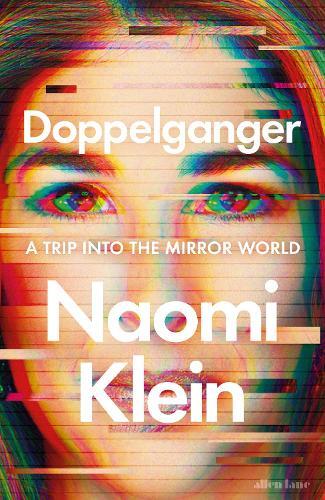
My standout read was Naomi Klein’s Doppelganger. From documenting the author’s growing obsession over her frequent misidentification as ‘Other Naomi’ (Naomi Wolf), Doppelganger becomes a gripping exploration of what Klein comes to call the Mirror World, the smoke and mirror conspiracies of the ultra-right, and the polarisation of online discourse and politics. It is hard to think of another writer who articulates so clearly and compellingly the realities of this strange, dichotomous, broken world of late stage capitalism we occupy – but through truly looking, and seeing the things we would prefer to unsee, Klein suggests there is hope for a collective way forward.
I came late to discovering Carmen Maria Machado’s short story collection, Her Body & Other Parties, but what a marvellous discovery it was. Centring womanhood and queer experience, Machado effortlessly blends elements of science fiction, magical realism, crime, the weird and the surreal. Every story is exquisitely written and crafted. I particularly loved Inventory, a pandemic tale, the stages of societal collapse glimpsed through the lens of the narrator’s many lovers as the world slowly falls apart – proof of just how much you can convey in a few short pages.


Emilie Pine’s Notes to Self is an intensely personal collection of essays, meditating on episodes of Pine’s life as a daughter, a lecturer, a writer, the possibility of becoming a mother and the heartache of having to let some dreams go, and the challenges and prejudices faced as a woman within each of these spheres. The writing is fierce and brave and confronting and heartfelt, truly from the gut and one that I know will stay with me.
I hugely enjoyed Rachel Kushner’s Creation Lake, a fusion of cynical undercover agent working to expose a group of eco-activists in southern France, alongside the musings of a cave recluse who believes the path to enlightenment lies in a new understanding of Neanderthal society. Kushner’s deft handling of philosophical meditations on the origins of humanity, to spy thriller, to the power of stories, and her ability to switch seamlessly between pathos and farce, made this an absolute treat.


The Jay, The Beech, and The Limpetshell by Richard Smyth was another delight. Through a series of treasures discovered alongside his young children, Smyth charts his appreciation and love for the natural world in all its glory, wonder, eccentricity, and downright weirdness. This was a fresh, charming and highly relatable perspective from a writer who has always been drawn to nature and finds new resonance in the more-than-human world through his hopes for the next generation.
As for my own writing – it’s been an intense twelve months to complete When There Are Wolves Again, which I delivered in the autumn. Along with the editorial process has come the joy of getting to geek out over birds with my brilliant editor, Anne Perry. I have copy-edits to complete in the new year, and Wolves is due to be published in October 2025.
Although there are no connections in terms of characters or story, I’ve come to think of this book as a companion novel to my last. The Coral Bones looks forward to how our world might look if urgent action is not taken on climate breakdown, whilst Wolves spans half a century in which real change begins. You can pre-order now through Waterstones, Amazon.co.uk and independent bookshops.
When There Are Wolves Again
Decades from now, two women sit around a fire on Beltane, May Eve, and reflect on their life stories.
Activist Lucy’s earliest memories are of living with her grandparents during the 2020 pandemic, and discovering her grandmother’s love of birds. Filmmaker Hester, born on the day of the Chornobyl explosion, visits the plant in 2021 to film its feral dog population, and encounters the wilded Exclusion Zone – and a wolf-dog.
Over half a century, their journeys take them from London to Balmoral to Somerset, through protests, family rifts, and personal tragedy. Lucy’s path leads to the fight to restore Britain’s depleted natural habitats and bring back the species who once shared the island, whilst Hester strives to give a voice to those who cannot speak for themselves. Both dream of a time when there are wolves again.
Happy new year everyone, and wishing you many happy hours of reading in 2025.
December 31, 2023
Favourite reads in 2023
Each year for the past few years, I’ve hoped to return to my pre-pandemic reading levels. It hasn’t happened this year, and it’s probably time to accept I’m unlikely to do so any time soon. There are many factors, but one contributor is simply that I’m reading substantially more non-fiction for research, and I read non-fiction much slower. And that’s okay – it will encourage me to choose my fiction with even more care. So on that front, here are the books that have stayed with me from this year:
Light Perpetual – Francis Spufford (2021)

In one of the most outstanding opening sequences I’ve ever read, a bomb detonates during the second world war in a fictional south London borough, instantaneously wiping out a classroom of children. The novel goes on to extrapolate what the lives of five of these children would have looked like, straddling decades of social and political change with flawless prose and deep humanity.
How High We Go In The Dark – Sequoia Nagamatsu (2022)

Nagamatsu’s novel opens with a Siberian plague, and the proximity of its publication date to Covid-19 inevitably placed it in the ‘pandemic novel’ category. However the novel’s remit is much broader, exploring the attitudes, behaviours and rituals around how we approach and deal with death, as individuals and as societies. From euthanasia theme parks to talking pigs, it’s a whirlwind of imagination and I love the confidence which with these scenarios are presented, without over-explanation, simply asking the reader to go with it and enjoy the ride.
Best of Friends – Kamila Shamsie (2022)

Kamila Shamsie has always stood out for me as a writer who is exceptionally good with character, and her most recent novel is no exception. We meet Zahra and Maryam as teenagers in Karachi, where they experience an incident which will haunt them for decades to come – as they move to London and as their lives, values and careers move further apart. An intimate exploration of friendship over time, as well as an unflinching examination of the darker side of UK politics.
Lamb – Matt Hill (2023)
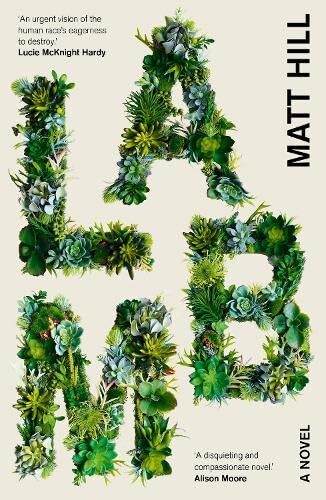
Similarly unflinching in its portrayal of austerity Britain is Matt Hill’s Lamb. Suffused with eerie descriptions and surreal imagery, Lamb sits closer to the horror end of the science fiction spectrum than I usually read, but Hill’s superb writing and immersive world-building held me spellbound throughout. The novel has the relationship between parents and children very much at its heart – examining the ties that hold us together and the sometimes brutal cost of that love. This book will stick with you.
The Belladonna Invitation – Rose Biggin (2023)

Rose Biggin’s marvellous depiction of fin de siècle Paris is packed with theatrical audacity and lush description. Revolving around a notorious poison salon, the novel follows the dynamic between two women, mysterious to each other and to the reader, in a subversive exploration of power, ambition and desire. Belladonna is a glorious read that leaves you wondering how much you can ever really know someone.
Shark Heart – Emily Habeck (2023)

A few weeks after young lovers Wren and Lewis marry, Lewis receives a terminal diagnosis – his memories and consciousness will remain (mostly) intact, but he will transform slowly into the body of a great white shark. This was another speculative read where I hugely admired the confidence and deceptive simplicity with which this scenario is presented to the reader. Also setting it apart, and with a wonderfully deft touch, was the use of theatre script to tell some sections of the story (as befits Lewis’s background as an actor). A beautiful and wonderfully unexpected read that might just break your heart.
In Ascension – Martin MacInnes (2023)

My year’s reading was bookended by two novels set in space and with common themes, one long and the other short. I read In Ascension whilst on holiday and am very glad I did as it is a novel that demands and perhaps requires full immersion. Told primarily through the perspective of biologist Leigh, who has always been drawn to the ocean, the novel takes the reader from the deepest ocean vents to distant space and the possibility of first contact, in a profound and moving exploration of the connectivity of all living things and the fragility of the one planet we call home. An extraordinary book.
Orbital – Samantha Harvey (2023)

The book I was most looking forward to this year, and it did not disappoint. I’ve loved Samantha Harvey’s writing ever since discovering Dear Thief. This slim volume, tracking 24 hours in the company of six astronauts on the international space station, contains worlds within its exquisitely crafted, beautiful prose. Seen from above, there are no borders on planet Earth, but look long enough and the cracks begin to show. As with In Ascension, this is a novel that pays homage to the beauty of our planet whilst exposing its fragility and the toll of human dominance.
An Immense World – Ed Yong (2022)

An Immense World explores the extraordinary diversity and complexity of the sensory world as experienced by a selection of non-human animals. I read this book slowly, over several months, for research, but I wanted to include it here as the contents are so transformative in how we perceive the world, how we might begin to rethink our commonalities and differences with other beings, how we relate to those we share the planet with, what we are still to understand and what we can never truly know. A genuinely awe-inspiring read.
On the writing front, it has been a big year for me. The Coral Bones was shortlisted for the BSFA Award for Best Novel, the Kitschies Red Tentacle for Best Novel, and the Arthur C. Clarke Award for science fiction book of the year. Amidst this wonderful news, my brilliant publisher Unsung Stories announced they would be closing down. I’ve been very lucky to find a new home for The Coral Bones with Jo Fletcher Books – the ebook is available now and the paperback edition from 4 January. I’m now halfway through a first draft of my new novel, The End Where We Begin, and the first half of 2024 will be very much focussed on finishing this draft.
A huge thank you to everyone who has supported The Coral Bones this year. I can’t say how much it means. And whatever you are reading or writing in 2024, I hope the words bring you inspiration, solace and joy.
October 9, 2023
Jo Fletcher Books to publish THE CORAL BONES and new novel THE END WHERE WE BEGIN
I’m thrilled to share that Jo Fletcher Books has acquired World rights for THE CORAL BONES and a new novel, THE END WHERE WE BEGIN.
Following the closure of Unsung Stories this summer, Jo Fletcher Books will be republishing THE CORAL BONES, first in ebook and then in paperback. My next novel will publish in 2025.

I can’t say too much about THE END WHERE WE BEGIN just yet – I’m working hard on the manuscript right now – but to give an idea, the novel follows two women from the present day five decades into the future, as they work to document and fight for the recovery and rewilding of devastated landscapes.
To all the readers who have been kind enough to share thoughts, reviews or recommendations for THE CORAL BONES, I am so grateful for your support. I feel immensely lucky that the book has this chance to find a new readership and build on the fantastic work done by Unsung Stories. Publishing Director Anne Perry has been hugely supportive of my work over the years; she is a phenomenal editor and I couldn’t have found a better home for my work. I’m looking forward to the journey together.
THE CORAL BONES is available in ebook from 1 October and will publish in paperback on 4 January, 2024. THE END WHERE WE BEGIN will publish in 2025.
June 18, 2023
THE CORAL BONES shortlisted for the Clarke Award

I’m over the moon to share that THE CORAL BONES has been shortlisted for the 2023 Arthur C. Clarke Award. The Clarke Award is given for the best science fiction novel first published in the United Kingdom during the previous year. It’s such an immense honour to be shortlisted for this award and needless to say THE CORAL BONES is in amazing company.
The 2023 shortlist is:
VENOMOUS LUMPSUCKER by Ned Beauman (Sceptre)
THE RED SCHOLAR’S WAKE by Aliette de Bodard (Gollancz)
PLUTOSHINE by Lucy Kissick (Gollancz)
THE ANOMALY by Hervé Le Tellier, translated by Adriana Hunter (Michael Joseph)
THE CORAL BONES by E. J. Swift (Unsung Stories)
METRONOME by Tom Watson (Bloomsbury)
The award winner will be announced on 16 August and you can read the full shortlist announcement here.

May 31, 2023
Unsung, Kitschies and MCM Comic Con
Publishing can sometimes feel like the slowest moving thing in the world, but occasionally things happen at pace.
A few weeks ago, my brilliant publisher for The Coral Bones, Unsung Stories, announced the heartbreaking news that they will be closing down. If you haven’t yet seen George Sandison’s post about why, please do take a look – it has so much to say about the extraordinary challenges of running a small press, and it’s testament to the dedication and passion of George, Dan, Vince and Laura that Unsung has continued for as long as it has. I will be forever grateful to them for giving The Coral Bones a home and a chance to find readers.
There is currently a sale for all the titles on Unsung’s list, including The Coral Bones, and you can still support our books until Unsung wraps up later this summer.
Without Unsung, I would not have been seeing the incredible news just a couple of weeks later that The Coral Bones has been shortlisted for The Kitschies Red Tentacle. This is such a huge honour – I have followed the Kitschies Awards avidly over the years and exploring their lists is always a source of great delight and discovery. To be among such company is a real privilege.
The Kitschies winners will be announced on 24 June at a ceremony as part of Bradford Literature Festival.
 The Kitschies Red Tentacle finalists 2023
The Kitschies Red Tentacle finalists 2023Finally, it was a delight to attend my second MCM Comic Con in London this weekend. Huge thanks to fellow authors Temi Oh, Nicholas Binge, and Kate Dylan for a great discussion on the Dystopian Worlds panel, and thank you as ever to the brilliant team at Forbidden Planet for looking after us at the signing afterwards.


March 8, 2023
THE CORAL BONES shortlisted for BSFA Best Novel Award

I’m over the moon to share the news that THE CORAL BONES has been shortlisted for a British Science Fiction Association (BSFA) award for Best Novel. It’s a huge honour and I’m immensely grateful to everyone who has voted for the book from such a fantastic longlist (do check it out for some great recommendations across fiction, non-fiction and artwork).
The shortlists will be voted on by BSFA members and the British Annual Science Fiction Convention (Eastercon). The winners will be announced during Conversation, this year’s Eastercon, to be held April 7-10, 2023 at the Birmingham NEC Hilton.
You can find the full BSFA shortlists here. Needless to say, THE CORAL BONES is among great company!
December 31, 2022
Favourite reads in 2022
Reviewing my 2022 reading, I found I’ve read fewer books this year than in almost a decade, in part due to general life events occupying time and headspace, but partly, I suspect, because I’m still struggling to recover my pre-pandemic levels of focus. So many things fractured in 2020, and it feels as though those ripples are continuing to work their way outwards in ways we are still at the edge of comprehending. When I consider the books that stood out for me this year, they are in different forms, but perhaps unsurprisingly, exploring themes of breakage and connectivity.

I began the year diving into the mycelial world with Entangled Life by Merlin Sheldrake (2020). This is wonderfully engaging non-fiction, and an important book in nature writing, shining a light on a living dimension of our shared world which is little known, under-researched, and which we are barely beginning to understand. It is also one which has the potential to radically reshape ideas from how we make pharmaceutical drugs and package our goods, to philosophies of identity and selfhood.
The Living Sea of Waking Dreams by Richard Flanagan (2021) was a searing read, brutal and beautiful in equal measure, Flanagan’s prose like a burning torch. The novel explores our relationships with each other and with the more-than-human world, using allegory to depict the biodiversity crisis and sixth mass extinction. At its centre, in the relationship between Anna and her mother Francie, is the terrible proximity of cruelty and love.

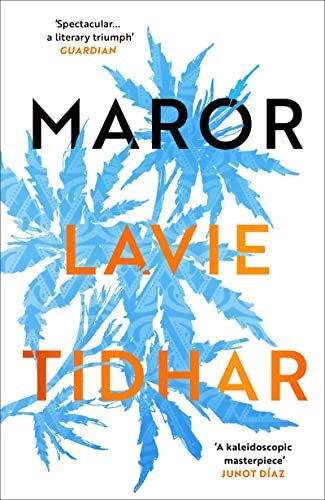
Maror by Lavie Tidhar (2022) was an epic ride spanning multiple continents and four decades of Israeli history. Tidhar’s superb skills as a short fiction writer are clearly in evidence as the novel dares you to invest in its large cast of sometimes recurring, perpetually imperilled characters, whilst the enigmatic detective Cohen is a constant, menacing presence at the centre. There are shades of Roberto Bolaño and James Ellroy in this masterful fragmented narrative about ideology, politics, power, and corruption.
The Movement by Ayisha Malik (2022) stood out for the care, nuance, and complexity with which its characters are drawn, exploring with devastating wit and panache how we (often fail to) navigate societal networks which are at once increasingly intersecting and polarised, both online and in person. It’s not often I come across a novel that makes me laugh as much as it makes me think. After finishing, I immediately looked up Malik’s earlier novels and thoroughly enjoyed This Green and Pleasant Land towards the end of the year.
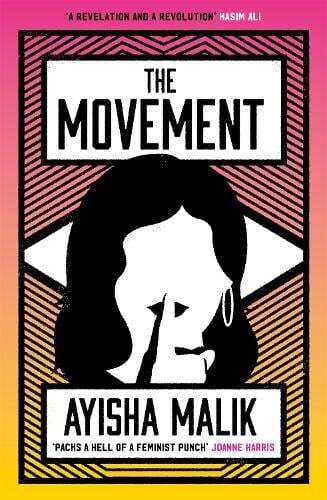
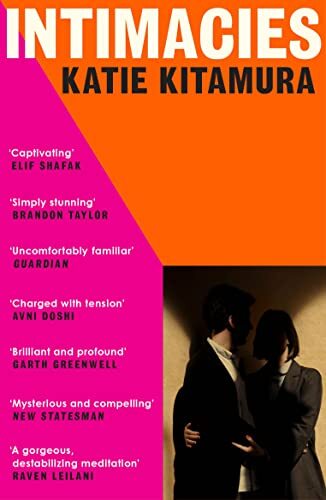
Early in the year I read and admired Katie Kitamura’s The Separation, but it was her most recent novel Intimacies (2021), read in the autumn, which has really stayed with me. The personal and political collide in this deceptively slim and sparely written novel about an interpreter working in The Hague’s international criminal court. Kitamura is a master in what remains unspoken, shimmering between the lines, exploring the limitations of language and narrative to make sense of our world.
Case Study by Graeme Macrae Burnet (2021) was a hugely entertaining read. Set in the 1960s and presented as a mixture of diary and biography, the novel follows a young woman who believes that a notorious psychiatrist, Collins Braithwaite, is responsible for her sister’s suicide. Exploring shifting identities and the nature – and societal constructions – of sanity, the novel is at once darkly comedic and increasingly unsettling, before offering a final, delicious twist at the close.
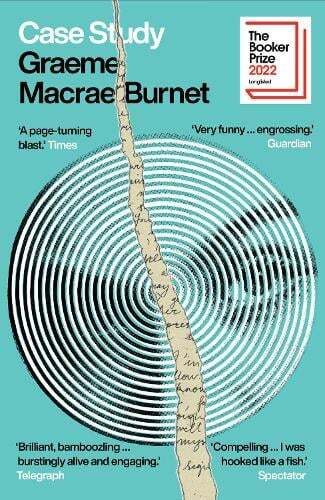
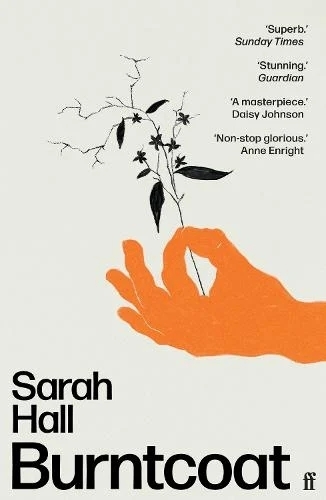
I spent the final days of the year immersed in Sarah Hall’s Burntcoat (2021). Hall is one of my favourite writers and this fierce, sensual, poetic novel about love, art, intimacy, grief and the intensity of lockdown is quite simply a stunning piece of work. As ever, I can’t wait to see what Hall writes next.
On the writing side, in September 2022 I published my fifth novel The Coral Bones with Unsung Stories, a book I had been working on since 2016. I’m hugely grateful to the readers, reviewers and writers who have engaged with the book and been kind enough to share their thoughts. I go into the new year with the inkling of a new project, hoping to be directing more time, headspace and energy to both reading and writing.
Here’s to the new year and the lightening days – wishing you entertaining and inspiring reading, health and happiness in 2023.
September 25, 2022
THE CORAL BONES is out now
The Coral Bones is out now and copies are starting to make their way into readers’ hands. I’m absolutely delighted that the novel has been included in The Guardian’s September science fiction round up, which described it as a ‘thoughtful, immersive, very human story that speaks to current fears and hopes for our world’.
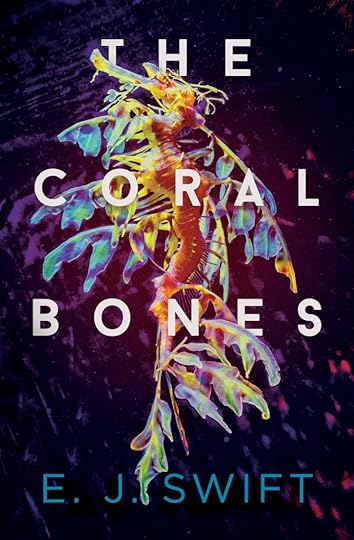
Early on in my research for the book, I read Dr Charlie Veron’s A Reef in Time and discovered that corals have evolved and become extinct several times through the history of life on earth.
Thinking about deep time in the face of the sheer pace and scale of environmental change today is one of the many dissonances I grappled with over the course of writing The Coral Bones. I started working on the novel in 2016, after a mass bleaching event on the Great Barrier Reef in the same year. A second bleaching event followed in 2017. Even six years ago, events like the 2019-20 wildfires in Australia and the flooding crisis in Pakistan today would have seemed like horrors from a distant future. Climate breakdown is accelerating at a rate that is terrifying, overwhelming and at times paralysing.
It’s no surprise, then, that writers are increasingly engaging with this theme. Books may not save us but perhaps they can help us process. When I was developing what would become The Osiris Project series over a decade ago, there didn’t seem to be many novels which were engaging directly with climate breakdown (Alexis Wright’s extraordinary The Swan Book, published in 2013, remains a touchstone work for me). Today there is a proliferation of superb novels and non-fiction exploring both climate and the biodiversity crisis, and climate anxiety haunts the backgrounds of many more.
Coral science and conservation is likewise continually evolving and in 2018 the world lost a brilliant and much loved coral scientist in Dr Ruth Gates, who died at age 56. Hana’s storyline in The Coral Bones is based upon research on human-assisted coral evolution pioneered by Dr Gates and Professor Madeleine van Oppen (any errors in the book are, of course, my own). Attending the Reef Conservation UK conference in December 2018, it was clear how much Dr Gates had meant to the community. I never had the privilege of meeting or speaking with Dr Gates but her words have been a huge inspiration for this novel; a quote from an interview she gave in Irus Braverman’s Coral Whisperers – Scientists on the Brink will always stay with me: ‘Coral reefs are my cathedral’. Dr Gates was also interviewed in the Netflix documentary Chasing Corals and I would recommend this – along with David Attenborough’s BBC documentary series on the Great Barrier Reef – to anyone interested in finding out more about corals. I owe a huge thank you to Dr Jamie Craggs, who showed me around the Project Coral laboratories at the Horniman Museum’s Aquarium in London. Amazing work is being done there and Dr Craggs’s research gave me an invaluable insight into the world of coral science.
Writing a novel can be a lonely path but the production of a book is very much a collaboration. This book would not have been possible without the support and belief of my partner, friends and family, my agent Margaret Halton and the marvellous people at Unsung Stories. It is often said that writing is a labour of love but so too is publishing in so many cases. I’ve been very lucky to have five novels published now and publication is always a mix of euphoria and terror. The timescales with an independent press also run much tighter to publication, so having been working on the book right up to a few months ago, the material feels closer than ever.
In many ways, since its genesis The Coral Bones has been overtaken by events. But the themes it explores come from a lifelong love of nature, and the hope, however frail and ephemeral it sometimes seems, that there is still time to turn things around. Books have a role to play here, I think, and I am grateful for the solace and inspiration found in the words of so many other writers.
So it’s now time to let the book go. I hope The Coral Bones can make a contribution to the wider, critical conversations about what is happening to our shared home. For anyone reading – I hope you find something in the stories of Hana, Judith and Telma that speaks to you.
You can find The Coral Bones via bookshops and retailers including:
Unsung Stories // Waterstones // Forbidden Planet // Amazon.co.uk
THE CORAL BONES
Three women: divided by time, connected by the ocean.
Marine biologist Hana Ishikawa is racing against time to save the coral of the Great Barrier Reef, but struggles to fight for a future in a world where so much has already been lost.
Seventeen-year-old Judith Holliman escapes the monotony of Sydney Town during the nineteenth century, when her naval captain father lets her accompany him on a voyage, unaware of the wonders and dangers she will soon encounter.
Telma Velasco is hunting for a miracle in a world ravaged by global heating: a leafy seadragon, long believed extinct, has been sighted. But as Telma investigates, she finds hope in unexpected places.
Past, present and future collide in this powerful elegy to a disappearing world – and vision of a more hopeful future.



